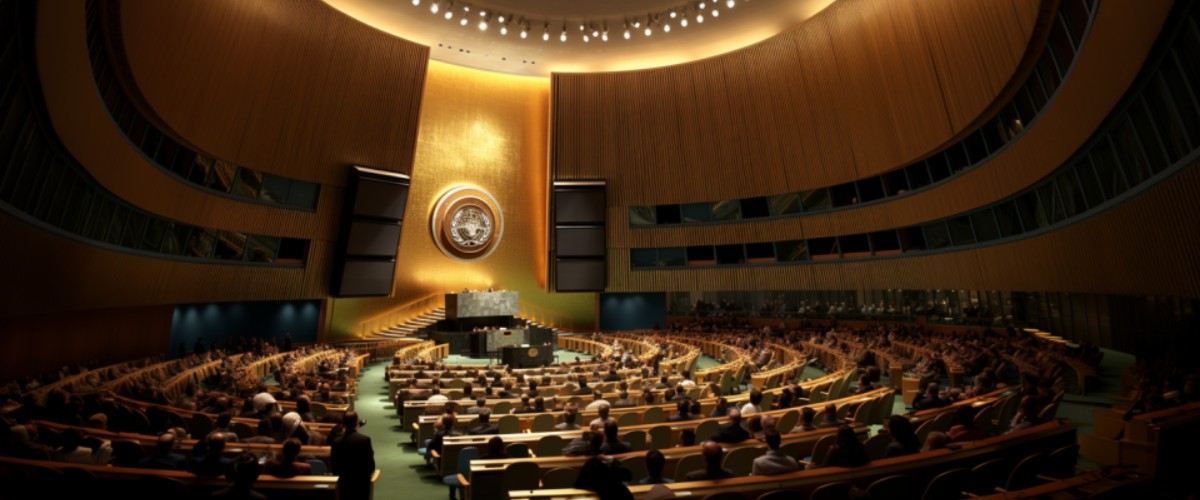The establishment of the United Nations (UN) in 1945 marked a cardinal moment in world history, symbolising collective hope for peace and cooperation among nations following the devastation of the Second World War. The UN was conceived to promote international cooperation and to prevent future conflicts, emerging as a vital institutional framework for managing global issues.
Background
Origins in Conflict
- End of WWII: The catastrophic impact of two world wars within three decades illuminated the acute need for a global peacekeeping body.
- The League of Nations’ Shortcomings: Failure to prevent aggression and war, partly due to the non-participation of major powers and lack of enforcement mechanisms.
Key Personalities and Entities
- Franklin D. Roosevelt and Winston Churchill: Both leaders played pivotal roles in envisioning and promoting an international organisation for peace.
- The Allied Powers: Primarily the United States, the Soviet Union, the United Kingdom, and China, steered negotiations and charted the UN’s initial path.
Major Happenings
San Francisco Conference, 1945
- Delegates Gather: Representatives from 50 countries convened in San Francisco in April 1945.
- Charter Drafting: Intense negotiations and discussions led to the drafting of the UN Charter.
- Ratification: The Charter was signed on 26 June 1945 and came into force on 24 October 1945.
Immediate Outcomes
A New Epoch in International Relations
- Membership Expansion: Initially comprising 51 member countries, the UN saw a gradual increase in membership as nations globally joined the forum.
- Initial Challenges: Tensions between the major powers, particularly during the onset of the Cold War, presented immediate challenges.
- Foundation of Bodies: Key components such as the General Assembly and the Security Council were established to address global issues and conflicts.
Long-term Impact
Shaping Global Destiny
- Peacekeeping and Conflict Resolution: Engaging in numerous peacekeeping missions and conflict mediation worldwide.
- Human Rights: Proclamation of the Universal Declaration of Human Rights in 1948, establishing an international benchmark for human rights.
- Social and Economic Development: Promoting development and coordinating aid through various specialized agencies like UNESCO and WHO.
Conclusion
The formation of the United Nations in 1945 heralded a new era in international relations, embodying the aspirations for peace, cooperation, and development. Its multifaceted role in addressing global challenges, from conflicts to pandemics, underscores its sustained relevance in the contemporary world. Despite criticisms and calls for reform, the UN’s principles and endeavours continue to shape global discourse, arguably cementing its place as an indispensable entity in our intertwined global fate. Reflecting on its decades of existence, one ponders upon its future adaptations to remain significant and efficacious in navigating the complex, ever-evolving global tapestry.








